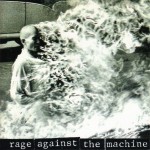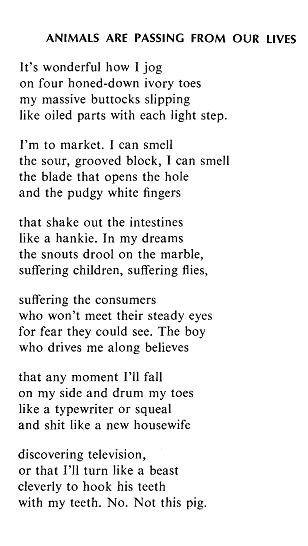12 Months of Essays on Poetry and Craft: March 2013 Vol. 5 # 8
Here’s how it goes: I say wa-ter, my daughter mouths back wa-wer, I congratulate her effort genuinely, and she gallops around the house shouting madly her wa-wer to the heavens. When she finally wears herself out, I am waiting there in the kitchen, cup in hand, to ask if she would like some more wa-ter.
❧
One of my favorite literature professors in college said the entire Iliad could be boiled down to a single word: rage.
❧
The first sonnet I ever wrote, I didn’t write out of love. I wrote instead, at the age of eighteen in my senior year English class, an angry little sonnet. It was Shakespearian, and I felt at the time that there was an automatic success bestowed upon anyone such as myself who had paid his dues with fourteen lines in strict iambic pentameter and a formal rhyme scheme. My reward: it was a poem. It was a very bad poem, which, like every other young poet’s first formal venture, followed dutifully “the letter but not the spirit of the law” (as Willard Spiegelman put it in his 2012 VQR essay “Has Poetry Changed? The View From the Editor's Desk”).
But I was a troubled eighteen-year-old, and the formal rules of old-guard poetry world soon felt like a close cousin of the societal laws with which I had so often found myself at odds (letter, spirit and otherwise). I wore leather, cavorted, smoked, drank, drugged, got arrested, hung a poster of James Dean and Marilyn Monroe on my wall, and in no time flat was writing free verse. It was good for me, even if (like Philip Levine said in an interview last year with Jake Marmer) “my earliest poems were not written with the benefit of the knowledge of poetry.” In those efforts, I learned how to be a poet, how to be inspired, to produce and to collect and to organize poems thematically. What’s more important, I learned why poets write poems—the dissatisfactions, the occasions.
❧
A free verse poet without an ear is a dog without a nose—he has nothing left to follow, nothing certain to chase after.
❧
Spoken quietly: “Anger is a gift”
❧
Rodney Jones told me the story of this poet, a student of his, who had real talent—the kind of talent most poets would envy, if not kill to possess. As Rodney tells it, she came to his office one day unannounced, sat down and asked if she had what it took. He didn’t follow. “You know, to be as good as Yeats?” she asked. To which he shrugged and said in his mild, egalitarian manner: “I don’t know. If you work fiercely at it for the next forty years… maybe?”
What he stopped short of saying is what I’ll add here: it’s not so much that a poet has the technical capacity to say something in poetry, but whether or not he actually has something to say. Virtuosity of language and syntax will only get him so far; the poet must be a human first, querulous, dissatisfied in some way with the world he inhabits, uneasy in his flesh. And then to be a decent poet, he also must be reflective, deliberate and inclusive with his indictments.
When Aristotle declares in his Nicomachean Ethics that “righteous indignation is a mean between envy and spite,” he is suggesting that the road to empathy passes through the heart of anger, that outrage itself is a compelling moral virtue. When poets can infuse syntax, sound and image with the energy embedded in the fiercest, most candid moments of human emotion, here’s what you get:
I’ll pull, you push, we’ll tear each other in half.
Come on, baby, lay me down on my back.
Pretend you don’t owe me a thing
and maybe we’ll roll out of here,
leaving the past stacked up behind us;
old newspapers nobody’s ever got to read again.
(Ai, “Twenty-year Marriage”)
And:
The whiskey on your breath
Could make a small boy dizzy;
But I hung on like death:
Such waltzing was not easy.
(Theodore Roethke, “My Papa’s Waltz”)
And:
Stop.
Stop here.
Living brings you to death, there is no other road.
(
And:
Gray whale
Now that we are sending you to The End
That great god
Tell him
That we who follow you invented forgiveness
And forgive nothing
(W.S. Merwin, “For a Coming Extinction”)
❧
There is no key to writing great poetry: only the will, the patience, and the confidence to do nothing else with your life.

